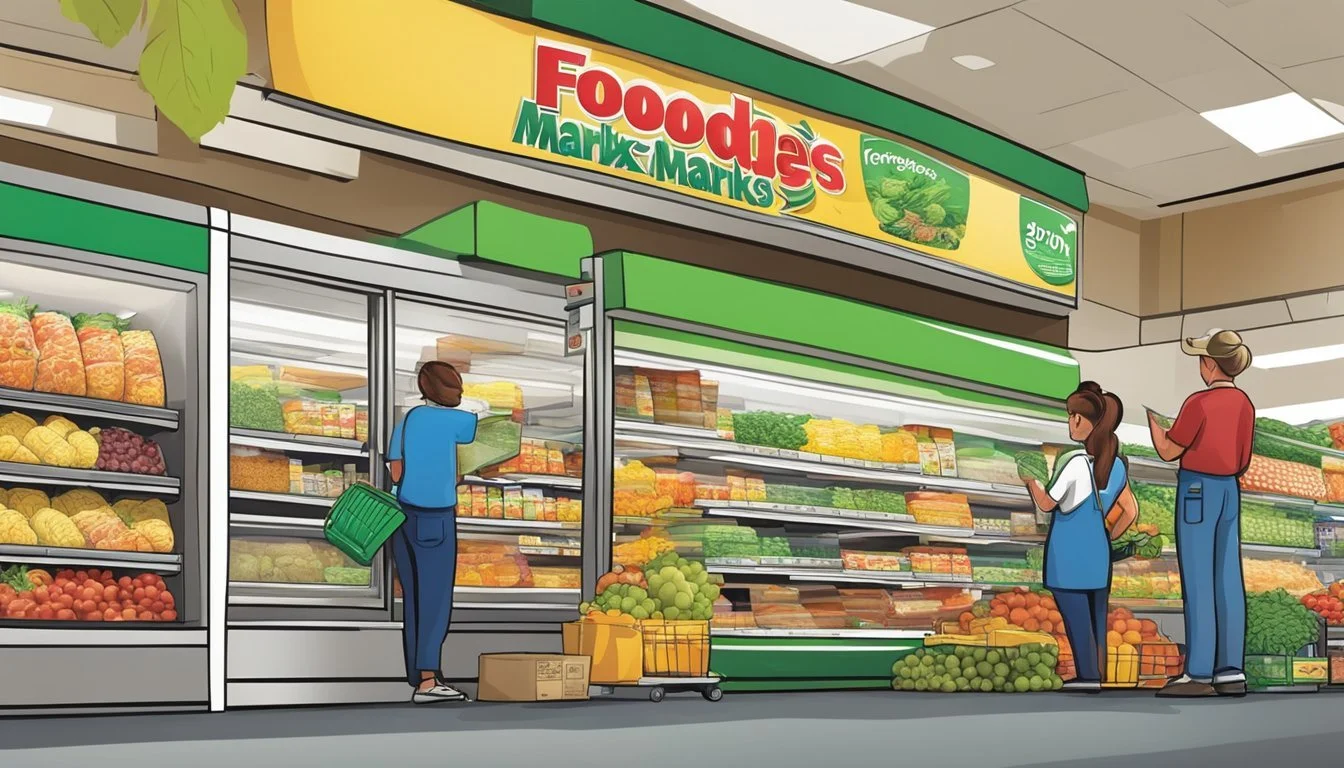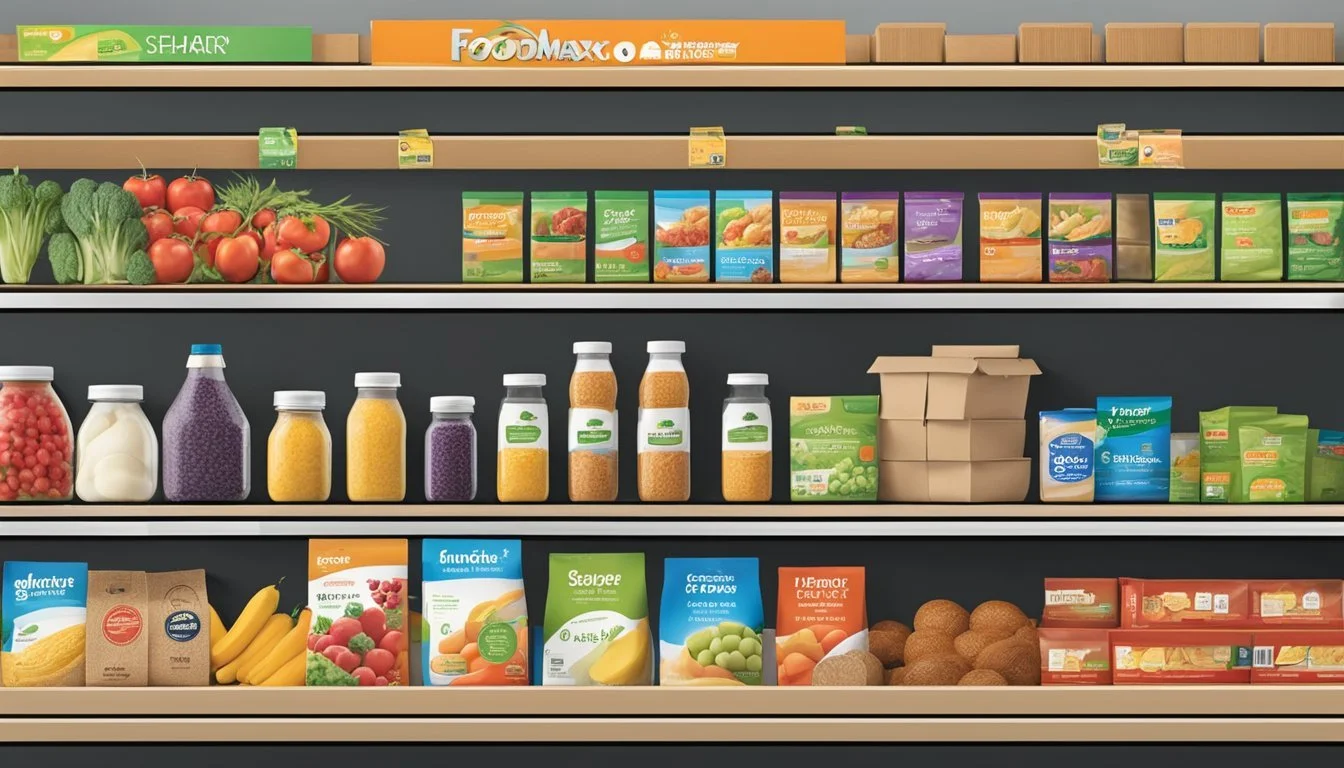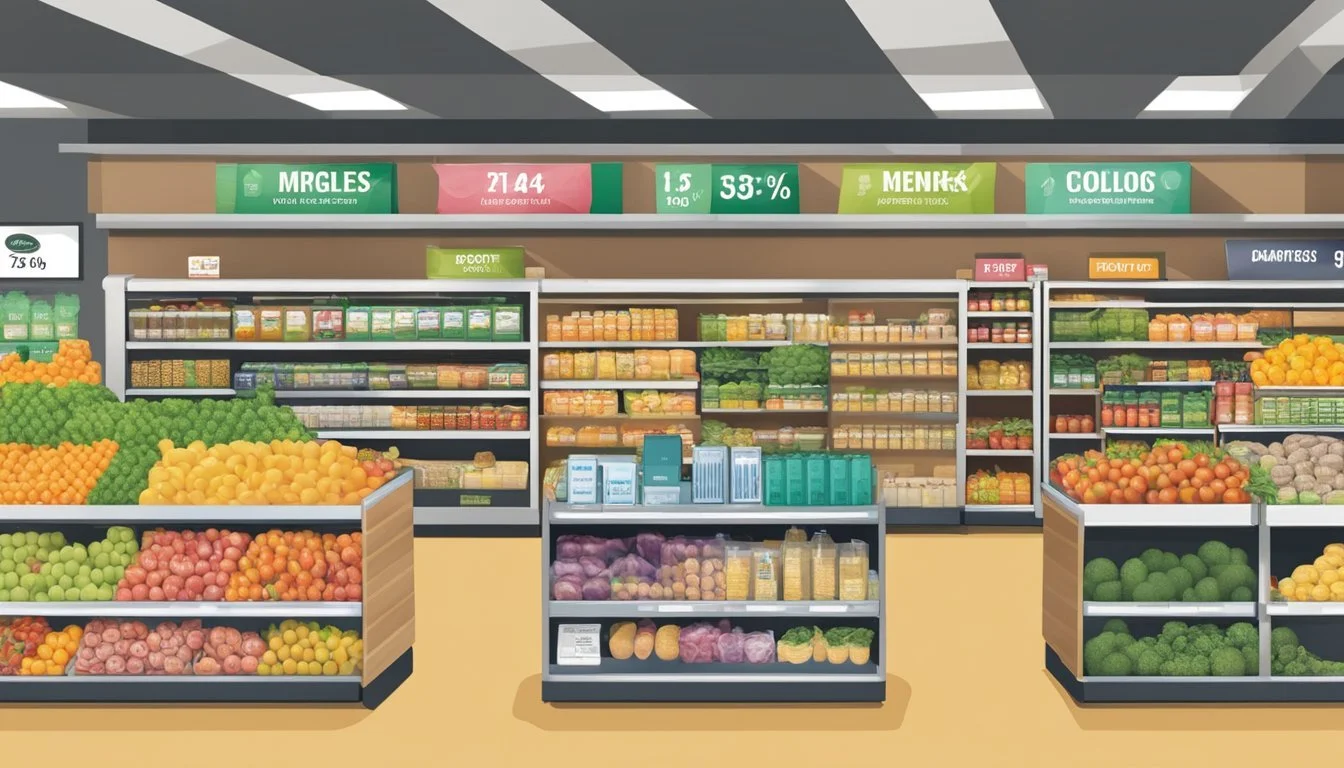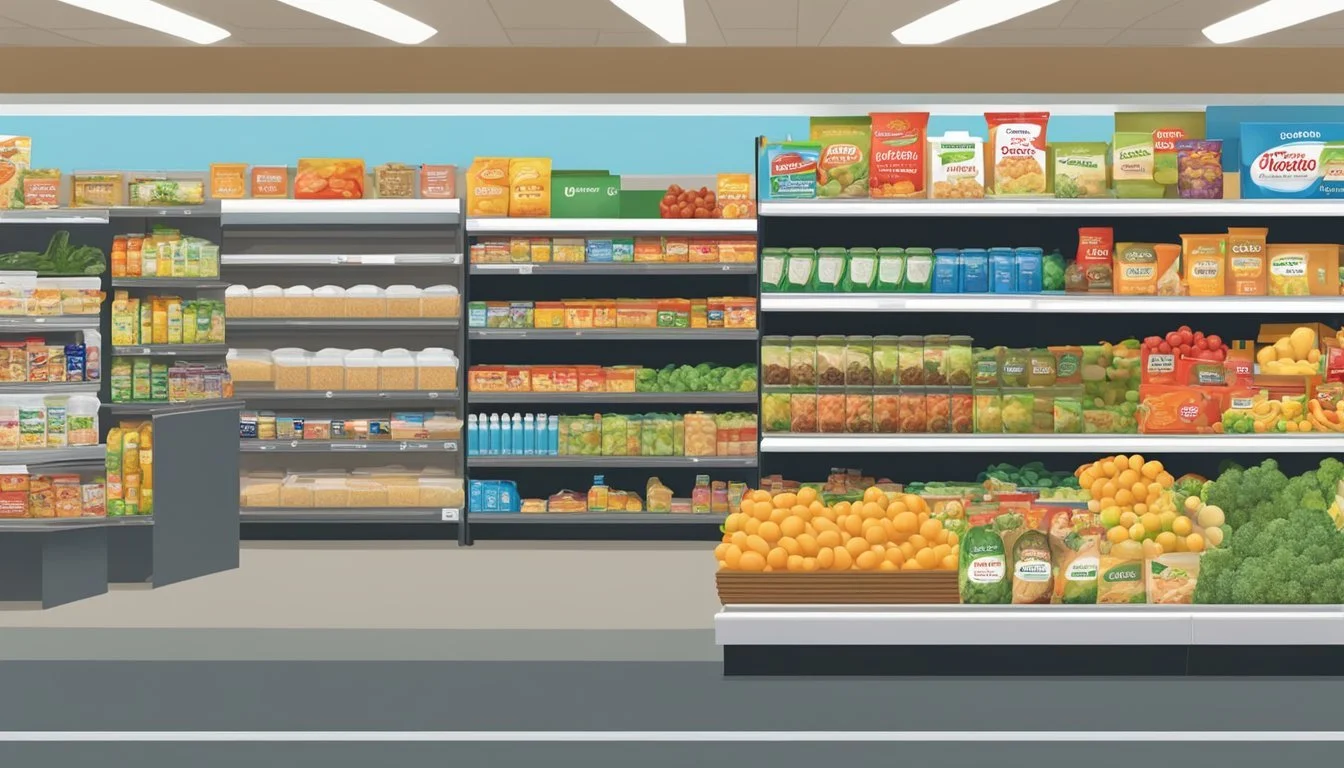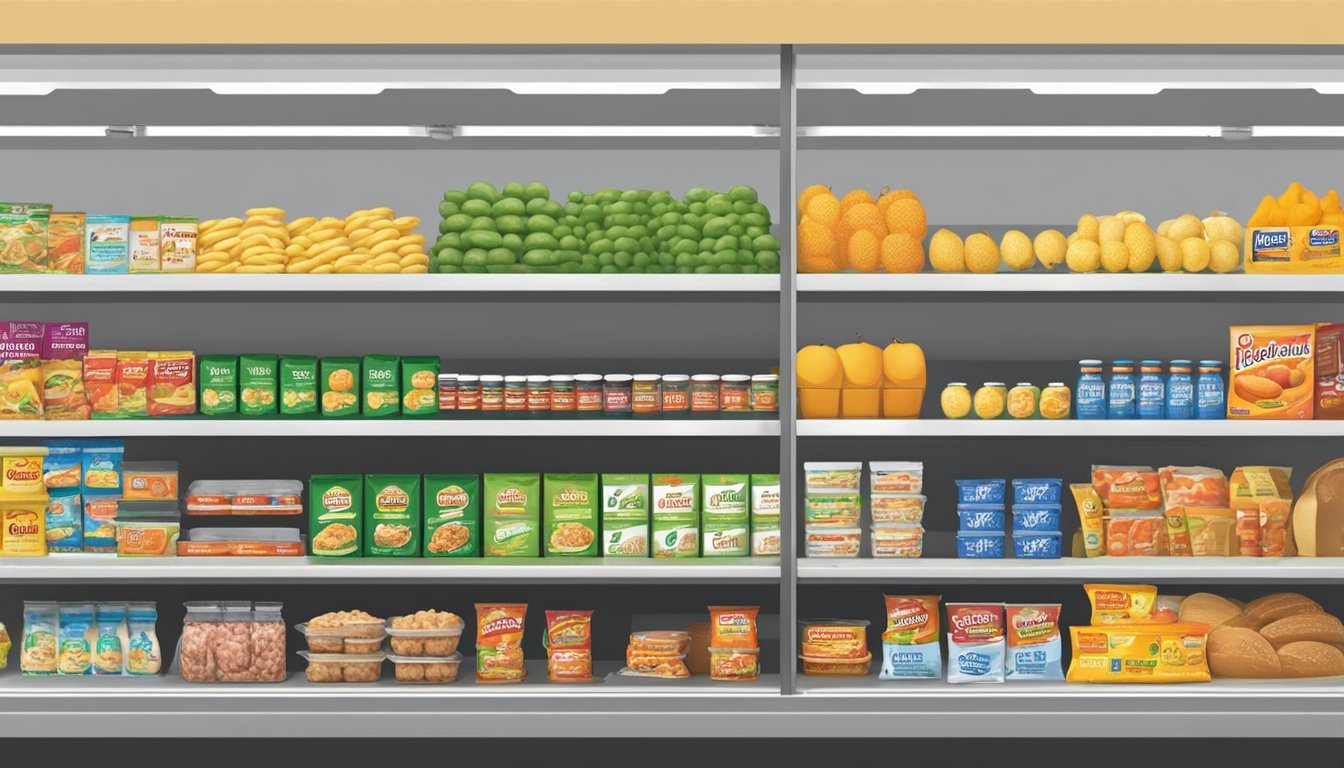Is FoodMaxx Cheaper Than Ingles Markets?
A Price Comparison Analysis
Grocery shopping can be a significant expense for many households, leading consumers to seek out the most affordable options. FoodMaxx and Ingles Markets are two popular grocery chains that cater to budget-conscious shoppers. While both stores offer competitive prices, their product selection and regional availability differ.
FoodMaxx generally offers lower prices compared to Ingles Markets, making it a more cost-effective choice for budget-conscious consumers. FoodMaxx is known for its no-frills approach, focusing on providing basic groceries at discounted rates. The store's streamlined operations and limited services contribute to its ability to maintain lower prices across various product categories.
Ingles Markets, on the other hand, provides a wider range of products and services, including in-store pharmacies and fuel centers. While this comprehensive approach may appeal to some shoppers, it can result in slightly higher prices compared to FoodMaxx. Consumers looking to maximize their savings may find FoodMaxx to be the more economical option for their grocery needs.
Comparing FoodMaxx and Ingles Markets Store Profiles
FoodMaxx and Ingles Markets are distinct grocery chains with different target markets and operational approaches.
FoodMaxx operates as a discount supermarket, focusing on providing low-cost groceries to budget-conscious shoppers. The stores typically feature a no-frills layout and emphasize bulk purchasing options.
Ingles Markets, in contrast, positions itself as a regional supermarket chain with a broader range of products and services. These stores often include additional departments like pharmacies and fuel centers.
Store size and layout differ between the two chains:
Feature FoodMaxx Ingles Markets Average store size Smaller Larger Store layout Simple, warehouse-style Traditional supermarket Additional services Limited More extensive
FoodMaxx caters to families looking to save money on groceries, offering a streamlined shopping experience. Ingles Markets aims to provide a more comprehensive grocery service, attracting customers who value variety and convenience.
Product selection varies between the two chains. FoodMaxx focuses on essential items and popular brands at discounted prices. Ingles Markets offers a wider range of products, including specialty and gourmet items.
Both chains strive to maintain competitive pricing, but their strategies differ. FoodMaxx emphasizes consistently low prices across the store, while Ingles Markets may offer more promotions and sales on specific items.
Price Analysis
FoodMaxx and Ingles Markets employ different pricing strategies that impact consumer savings. Their approaches to everyday items, bulk purchases, and discounts shape the overall shopping experience.
Overall Pricing Strategies
FoodMaxx focuses on offering consistently low prices across their product range. They achieve this through a no-frills store layout and limited services. FoodMaxx's prices are typically 21% lower than average grocery stores, making them a budget-friendly option for shoppers.
Ingles Markets, on the other hand, uses a mix of regular prices and weekly sales. They tend to have higher everyday prices but offer deeper discounts on select items each week. This approach can benefit savvy shoppers who plan their purchases around sales cycles.
Everyday Items Price Comparison
A comparison of common grocery staples reveals notable differences:
Item FoodMaxx Ingles Markets Milk (1 gallon) $2.99 $3.49 Bread (1 loaf) $1.79 $2.29 Eggs (1 dozen) $2.49 $2.99 Cheese (1 lb) $3.99 $4.79
FoodMaxx consistently offers lower prices on these everyday items. For a family of 4, these savings can add up to $10-$15 per week on staples alone.
Bulk Buying and Discount Benefits
FoodMaxx excels in bulk buying options, offering significant discounts on larger quantities. Their "case lot" sales provide extra savings on pantry staples and non-perishables. Customers can save up to 30% by purchasing in bulk during these events.
Ingles Markets provides a different type of saving through their loyalty program. Members receive personalized discounts and can accumulate points for future purchases. While not as straightforward as FoodMaxx's bulk discounts, this system can lead to substantial savings for regular shoppers.
Both stores offer digital coupons, but FoodMaxx tends to have more manufacturer coupons available. This can result in additional savings of 5-10% on select items for coupon-savvy customers.
Product Selection and Quality
FoodMaxx and Ingles Markets differ in their product offerings and quality standards. Both stores aim to provide value, but their approaches and focus areas vary.
Fresh Produce and Meat Quality
FoodMaxx emphasizes affordable fresh produce and meats. Their produce section offers a standard selection of fruits and vegetables at competitive prices. While the variety may be less extensive than some competitors, FoodMaxx provides fresh options suitable for most household needs.
The store carries some organic produce, though the selection is typically limited. FoodMaxx's meat department focuses on budget-friendly cuts and family packs. Quality can be inconsistent, but many shoppers find acceptable options for everyday meals.
Ingles Markets, in contrast, tends to offer a wider range of fresh produce, including more organic and locally sourced options. Their meat department often features higher-quality cuts and a broader selection of specialty meats.
Dry Goods and Frozen Foods
FoodMaxx excels in providing low-cost dry goods and frozen foods. The store carries a mix of name-brand and generic staples, allowing customers to choose based on preference and budget. Their frozen food section typically offers a good variety of budget-friendly options.
Ingles Markets generally stocks a more extensive selection of dry goods, including specialty and gourmet items. Their frozen food section often includes more premium and health-focused options alongside basic staples.
Both stores carry popular national brands, but FoodMaxx may have a higher proportion of generic or lesser-known brands to keep prices low.
Specialty Departments and Services
FoodMaxx typically has limited specialty departments. Their deli section usually offers basic cold cuts and prepared foods. The bakery department, if present, focuses on essential items like bread and simple cakes.
Ingles Markets often provides more comprehensive specialty departments. Many locations feature full-service delis with a wider range of prepared foods and specialty meats. Their bakeries usually offer a broader selection of fresh-baked goods and custom cake services.
Ingles Markets may also include additional services like pharmacies, fuel centers, or floral departments in some locations, which are less common in FoodMaxx stores.
Shopping Experience
FoodMaxx and Ingles Markets offer distinct shopping experiences for grocery consumers. Their amenities, customer service, and convenience programs shape how customers interact with each store.
Amenities and Checkout Efficiency
FoodMaxx focuses on a no-frills approach to keep prices low. Stores typically have basic amenities and fewer checkout lanes. Customers often bag their own groceries to reduce costs.
Ingles Markets provides more amenities like in-store pharmacies and fuel centers at many locations. They offer both self-checkout and staffed lanes for efficiency.
Both chains use electronic scales for produce and bulk items. FoodMaxx may have fewer scales available compared to Ingles.
Customer Service and Store Atmosphere
FoodMaxx maintains a warehouse-style atmosphere with minimal decor. Staff assistance is available but limited to keep overhead costs down.
Ingles Markets cultivates a more traditional grocery store environment. They emphasize customer service, with more employees available to assist shoppers.
Ingles typically receives higher ratings for store cleanliness and organization. FoodMaxx prioritizes function over form in its store layout and design.
Convenience and Shopper Programs
FoodMaxx offers a basic rewards program for regular customers. It provides discounts on select items but has fewer perks compared to other chains.
Ingles Markets features a more robust loyalty program. Their Ingles Advantage Card offers fuel discounts, digital coupons, and personalized deals.
Ingles has embraced digital shopping with online ordering and curbside pickup options. FoodMaxx has been slower to adopt these conveniences.
Neither chain currently participates in Amazon Prime member deals, unlike some competitors in the grocery market.
Market Comparison With Other Retailers
FoodMaxx's pricing strategy positions it uniquely among grocery retailers. Its low-cost model impacts how it compares to various competitors across different market segments.
Comparison With Major Retail Chains
FoodMaxx generally offers lower prices than large national chains like Walmart, Target, and Kroger. On staple items such as peanut butter, FoodMaxx often undercuts these retailers. However, major chains frequently use loss leaders and on-sale items to attract customers, sometimes beating FoodMaxx's prices on specific products.
Walmart's everyday low pricing can rival FoodMaxx on some items, but FoodMaxx typically maintains an edge on produce and meat. Target tends to be pricier overall, though its frequent promotions can create competitive deals. Kroger's prices are usually higher, but its loyalty program and personalized discounts can narrow the gap for regular shoppers.
Specialty and Regional Store Comparisons
When compared to specialty retailers like Sprouts Farmers Market and Whole Foods, FoodMaxx offers significantly lower prices across most categories. However, these stores often provide a wider selection of organic and specialty items.
Regional chains like Publix and Safeway typically have higher regular prices than FoodMaxx. Aldi and Grocery Outlet are closer competitors, with similarly low-cost models. Aldi often matches or beats FoodMaxx prices on private label items, while Grocery Outlet's ever-changing inventory of discounted products can offer deeper savings on specific items.
Online Grocery Alternatives
FoodMaxx's in-store prices are generally lower than online-only options like Amazon Fresh. However, online retailers often provide convenience and time-saving benefits that FoodMaxx doesn't match.
Many traditional grocers now offer online ordering and delivery services, which can be pricier than shopping in-store at FoodMaxx. These services often include fees and may have higher product prices to cover operational costs.
Some online-only grocers focus on bulk purchasing or membership models, potentially offering savings comparable to FoodMaxx for customers willing to buy larger quantities or pay annual fees.
Budget Strategies for Consumers
Savvy shoppers can employ various tactics to stretch their grocery budgets. These strategies help families and individuals maximize savings while still meeting their nutritional needs.
Meal Planning and Bulk Shopping
Creating a weekly meal plan is crucial for efficient grocery shopping. Start by taking inventory of what's already in the pantry and refrigerator. Plan meals around these items to reduce waste. Make a detailed shopping list based on the meal plan to avoid impulse purchases.
Buying in bulk can lead to significant savings, especially for non-perishable items and frequently used products. Compare unit prices to ensure bulk purchases are actually cheaper. Store bulk items properly to maintain freshness and prevent spoilage.
Consider joining a bulk-buying club or cooperative to access wholesale prices. Split large quantities with friends or family members to share costs and avoid waste.
Utilizing Deals and Promotions
Stay informed about current sales and promotions at local grocery stores. Compare prices across different retailers to find the best deals. Use grocery store apps or websites to access digital coupons and special offers.
Stack coupons with sales for maximum savings. Some stores allow combining manufacturer and store coupons on a single item. Keep an eye out for double coupon days to multiply savings.
Consider buying generic or store-brand products, which are often significantly cheaper than name brands. Many store brands offer comparable quality at a fraction of the cost.
Loyalty Programs and Membership Benefits
Sign up for loyalty programs at frequently visited stores. These programs often offer exclusive discounts, personalized coupons, and points that can be redeemed for future purchases.
Some stores provide additional benefits for loyal customers, such as early access to sales or special member-only pricing. Take advantage of these perks to maximize savings.
Consider paid membership programs at warehouse clubs or certain grocery chains. Calculate potential savings to determine if the membership fee is worth the benefits offered.
Seasonal Shopping Tips
Align grocery shopping with seasonal produce availability. Fruits and vegetables are often cheaper and fresher when in season. Buy extra seasonal produce and freeze or preserve for later use.
Look for holiday-specific sales around major events like Thanksgiving, Christmas, or Easter. Stock up on non-perishable items during these sales to save throughout the year.
Pay attention to cyclical sales patterns. Many grocery items go on sale at predictable intervals. Track prices of frequently purchased items to identify the best times to buy and stock up.
Take advantage of end-of-season clearance sales. Stores often discount seasonal items to make room for new stock. This is a great opportunity to save on non-perishable seasonal products for the following year.
External Influences on Price and Availability
Market trends play a significant role in shaping prices at FoodMaxx and Ingles Markets. Economic factors such as inflation, supply chain disruptions, and changes in consumer demand can impact costs.
Researchers have found that location affects grocery prices. Stores in urban areas may have higher operating costs, potentially leading to higher prices compared to rural locations.
Consumer behavior influences pricing strategies. Surveyed area consumers often compare prices across multiple stores, prompting retailers to adjust their pricing to remain competitive.
Factors affecting prices:
Seasonal availability of produce
Transportation costs
Local competition
Supplier relationships
Average prices can fluctuate based on these external factors. Consumerpedia, a consumer information resource, reports that prices for staple items can vary by up to 20% between different regions.
Podcasts discussing grocery shopping trends have noted that store loyalty programs and digital coupons are increasingly influencing consumer choices and pricing strategies at both FoodMaxx and Ingles Markets.
Weather events and natural disasters can impact crop yields, leading to temporary price increases or product shortages. This affects availability and pricing at both chains, though the impact may vary by region.
Conclusion
FoodMaxx emerges as the more budget-friendly option compared to Ingles Markets. Price comparisons across various product categories consistently show FoodMaxx offering lower prices.
FoodMaxx's cost-saving strategies, including a focus on private label brands and a no-frills shopping experience, contribute to its ability to maintain competitive pricing.
Ingles Markets provides a wider selection of products and services, which may justify higher prices for some shoppers. However, for those prioritizing savings on groceries, FoodMaxx is the clear winner.
Customers looking to stretch their grocery budget can expect significant savings by choosing FoodMaxx over Ingles Markets. The price differences can add up to substantial amounts over time, especially for families with large grocery bills.
It's important to note that individual experiences may vary based on specific product needs and local market conditions. Shoppers are encouraged to compare prices on their commonly purchased items at both stores to make the most informed decision for their unique circumstances.

